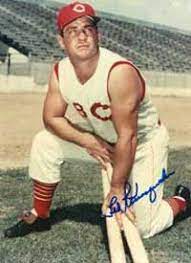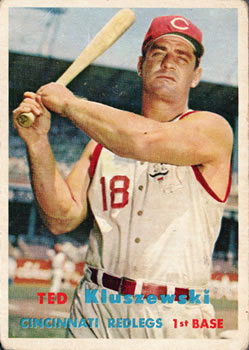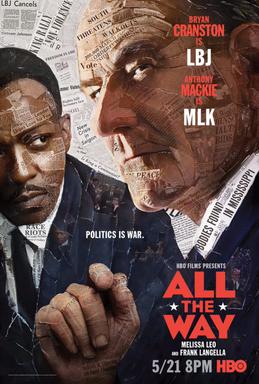How good is the song? Consider the number of performers who have done "covers." Those performers have come from disparate fields. I consider the song as reflecting rare genius and inspiration. The complex melody is at the opposite of the spectrum from the three-chord template, not that there's anything wrong with a good three-chord song. Anyone can think up a three-chord song and make it reasonably appealing. Fine.
But the wellspring for a melody like "MacArthur Park" comes from an inscrutable and mysterious place in the soul.
There's no science for composing such a melody. An irreverent soul might suggest "drugs." I suspect it's myth that drugs have much or anything to do with creating good music. Creating good music comes from a sense of craftsmanship and from the discipline that accompanies mastering something. Still, there's no scientific way to put the words and music together like in "MacArthur Park."
Is it inspiration? Is that the wellspring? John Lennon might talk about the inspiration behind a certain song, but I would suggest it was more of an idea, something where there was no real investment of emotion. Emotion isn't the key to being successful at anything, though it's fashionable to suggest it is. Was Jimmy Webb really broken up by a dissolved relationship when he wrote "MacArthur Park?" Or did he just conceive of a song that explored the wreckage of a broken relationship, in the abstract and with no real fixation on himself?
I guess I'm presenting this as a rhetorical question. Emotions cloud your judgment. Writing a successful song requires a sober sense of focus - incredible focus - that taps the craft or skillset of songwriting. Songwriters have fun later on talking about all the "inspiration." Such talk builds fascination with a song. Much can be balderdash.
An instrumental made its mark
My first exposure to "MacArthur Park" came through Maynard Ferguson and his big band. Ferguson's incredibly sharp recording under the guidance of the superior British studio system, mesmerized a generation of high school jazz band students. (Jazz band was more often called stage band back then, as "jazz" seemed edgy for parents' tastes.)
Wow! Maynard showed his characteristic high-note mastery. The arrangement was incredibly tight. Some fine improvisation was featured. Maynard's version vaulted his comeback that put his music in the mainstream of current tastes. Those British music minds had things all figured out.
Previous to this album, Maynard did a series of understated, rather esoteric jazz-oriented albums. Maynard had a "down" period with his "chops" too. With his album "M.F. Horn" that included "MacArthur Park," Maynard took a significant new step that guaranteed his long-term popularity with the young jazz (or stage) band folks.
Of course, the primary tributes to this song should focus on the lyrics as much as the melody. Webb composed the song in the summer and fall of 1967. In a fateful move, he brought his new cantata piece to the group "The Association" which turned it down. The Association had a chance to be associated permanently with an iconic piece, a ground-breaking "concept" piece that went so far beyond the standard three-minute song template.
"Lost love" supplies the grist
The cover story for the song's lyrics was Webb's breakup with significant other Susie Horton. Horton would marry Robert Ronstadt, cousin of Linda Ronstadt.
Webb and his transitory lover would socialize at MacArthur Park, a real place. Indeed, Webb would tell us that everything in the song was real.
Webb and his transitory lover would socialize at MacArthur Park, a real place. Indeed, Webb would tell us that everything in the song was real.
The material was not, as they'd refer in '60s parlance, "psychedelic." The "cake left out in the rain" was genuine imagery, Webb would tell us.
The two lovers occasionally met for lunch at this park in Los Angeles. He incorporates the "old men playing checkers by the trees."
Believe it or not, Webb wrote two smash songs as the fallout from a deteriorated romance. In addition to "MacArthur Park," we got "By the Time I Get to Phoenix." Yes, Webb may have been devastated by the unraveling of the amorous tie, but he'd take his two hit songs over any chance to re-kindle the embers, I'm convinced! So much for love conquering all. A songwriter has to pull teeth just to get a fraction of the success that those two songs represented. It's the pinnacle, it's reaching the summit of Everest. True love can be put on hold, Kemosabe.
Music producer Bones Howe helped lay the foundation for "MacArthur Park." He produced recordings for The Association. Guys my age have a vivid memory of Association songs like "Cherish" and "Windy," once heard in constant rotation on KDWB Radio in Minnesota. Our deejay was "Tac" Hammer, remember y'all.? Howe thought up a challenge for Webb, to write and compose a classically structured song with several movements that could be played on the radio.
Webb wrote a song that begins as a poem about love, then moves into a lover's lament. There are four sections or movements. It's no surprise that bandleader Stan Kenton eventually seized on this song. He very self-consciously promoted sophistication. Kenton had a flute featured on melody at the start. Maybe Kenton was just trying to keep up with his old bandmember Maynard Ferguson. Those bands truly ate up "MacArthur Park."
Giving the original its due
But us young jazz fans erred if we didn't pay attention to the original version with those lyrics. I very belatedly began studying the latter. The Association rejected the song because of its length, complex structure and unorthodox lyrics. The length issue was very real then.
The door opened for Richard Harris to make his pop music debut. The recording was done in December of 1967 in Hollywood. Instrumental overdubs followed. The song was put on Harris' album "A Tramp Shining." The song did well considering the length issue.
Webb gave us a true musical backdrop for the '60s, a hyper-alive decade but one with the horrible cloud of the Viet Nam war. Webb gave us "Up-Up and Away." I wonder how Webb felt when the Association rejected "MacArthur Park." You know what? Successful music composers understand rejection better than anyone. They must master patience and resilience.
Richard Harris was primarily an actor. But this worked for bringing across "MacArthur Park" as genuine, as he essentially "read" the lyrics with a sense of drama. He did the recording soon after starring in the movie "Camelot." He'd go on to play "Professor Dumbledore" in the first two "Harry Potter" movies.
It has been said that Harris brought a kind of theatrical dignity to "MacArthur Park" and other songs. We learn that "MacArthur Park" has been covered by 150 to 200 artists. What a testament to the artistry. Donna Summer recorded a disco version in 1978 that climbed to No. 1. Disco could be a vehicle for compelling art just like any other music genre.
Trivia: Webb's original lyrics mention that the "cake" was "laced with hashish." Oh no. Legalities ensured that wouldn't fly.
Here's a toast to brass
Maynard Ferguson rode the gravy train of this song through the whole concluding chapter of his brassy career. Sometimes it was brassy to a fault. But oh well, his fans loved the ten-minute jazz instrumental of "MacArthur Park" on the 1993 release "The Essential Maynard Ferguson." His original cover of the song came out in 1970.
Surely you remember that Weird Al Yankovic parody of the song that told the story of Jurassic Park. A dinosaur ate a lawyer in the movie, we were reminded in the lyrics, which showed that "dinosaurs weren't all bad."
I write topical songs and I doubt that I could ever write a meaningful song about love or love lost. I have no romantic background with the opposite sex. Oh, I'm not gay either. I would have to write about love in the abstract. I'd risk trotting out stereotypes just as stale as the old "Hollywood kiss."
Maybe someday I'll say "spring was never waiting for us, girl."
- Brian Williams - morris mn Minnesota - bwilly73@yahoo.com










_(2).jpg/1200px-Donald_Trump_(8567813820)_(2).jpg)
